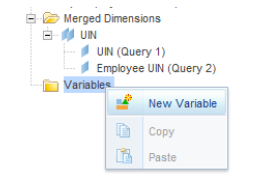Managing schema evolution for Parquet files can be challenging because Parquet, as a columnar file format, stores schema metadata in its footer, and schema changes can disrupt compatibility if not handled carefully. Here are best practices for managing schema evolution with Parquet files:
1. Design Schema for Future Changes
When creating the initial schema, anticipate potential changes by adopting practices that support evolution:
- Additive Schema Design:
- Design schemas to allow adding new columns or fields without breaking existing readers.
- Nullable Fields:
- Make fields nullable whenever possible, ensuring compatibility if fields are added or removed later.
- Avoid Changing Existing Column Types:
- Avoid modifying column data types or their names. Instead, create new columns with the updated definition and phase out the old ones.
2. Maintain Schema History
Keep a versioned history of schema definitions in a centralized location, such as:
- External Schema Registry:
- Tools like Confluent Schema Registry or an equivalent service to manage and retrieve schema versions.
- File System/Database:
- Store schema versions alongside the data files in a metadata layer or as part of the ETL pipeline.
3. Use Tools for Schema Management
Leverage frameworks and libraries that support schema evolution when working with Parquet:
- Apache Avro:
- Use Avro schemas as an intermediary format for Parquet data. Avro’s schema evolution rules can handle changes (e.g., adding/removing fields) and can then be mapped to Parquet.
- Delta Lake:
- Delta Lake (an extension of Parquet) provides ACID transactions and schema enforcement, making it easier to manage schema evolution and schema validation.
4. Backward and Forward Compatibility
Ensure compatibility between producers (writers) and consumers (readers):
- Backward Compatibility:
- A new schema should work with old files, meaning old consumers can still read files written with the updated schema.
- Forward Compatibility:
- Old files should work with the new schema, meaning new consumers can read files written with the old schema.
Typical changes that are compatible:
- Adding new columns (backward-compatible).
- Removing unused columns (forward-compatible).
Breaking changes to avoid:
- Changing column names.
- Changing data types (e.g.,
inttostring). - Changing column order.
5. Enforce Schema Validation
Ensure schema validation at write time to avoid introducing files with incompatible schemas:
- Schema Enforcement:
- Use tools like Apache Spark to validate schemas when writing new Parquet files.
- Configure Spark to merge schemas if files with slightly different schemas are being combined (
spark.sql.parquet.mergeSchema).
6. Partitioning for Easier Evolution
Use partitioning to isolate data written with different schemas:
- Partition data by a fixed key (e.g., date, region) to minimize conflicts.
- If schema evolution occurs, it will only affect new partitions, and older partitions will remain intact with their original schema.
7. Metadata Layer for Schema Evolution
Add a metadata layer to handle schema evolution and track schemas across files:
- Use Apache Iceberg or Delta Lake:
- These frameworks extend Parquet and provide features like schema versioning, schema validation, and handling schema evolution transparently.
- Store metadata (e.g., JSON files) alongside Parquet files to track schema versions.
8. Column Name and Ordering Best Practices
- Avoid Renaming Columns:
- Renaming breaks compatibility because Parquet uses column names as identifiers.
- Instead, deprecate the old column and add a new column with the new name.
- Column Ordering:
- Keep column ordering consistent. New columns should always be added at the end of the schema.
9. Use Schema Migration Scripts
When evolving schemas, write scripts to migrate or validate Parquet files:
- Use Apache Spark or PyArrow to read old files, apply transformations, and rewrite them with the updated schema.
- Maintain a process for converting legacy files into the new schema format as needed.
10. Communicate Schema Changes Across Teams
If multiple teams produce or consume Parquet data:
- Share schema evolution plans in advance.
- Use documentation, versioning, and schema validation to minimize miscommunication.
Workflow Example
- Initial Write:
- Define schema and write Parquet files.
- Save schema definition in a schema registry or metadata store.
- Schema Change:
- Update schema in the registry.
- Validate changes (ensure backward and forward compatibility).
- Write new files with the updated schema.
- Schema Validation:
- Use Spark, Delta Lake, or Iceberg to enforce schema rules when reading or writing files.
- File Maintenance:
- Optionally, rewrite older files with the new schema if necessary.
Conclusion
Following these best practices, you can effectively manage schema evolution for Parquet files without breaking compatibility or disrupting downstream systems. Tools like Avro, Delta Lake, and Iceberg make schema management and enforcement significantly easier, especially in large-scale distributed systems.










